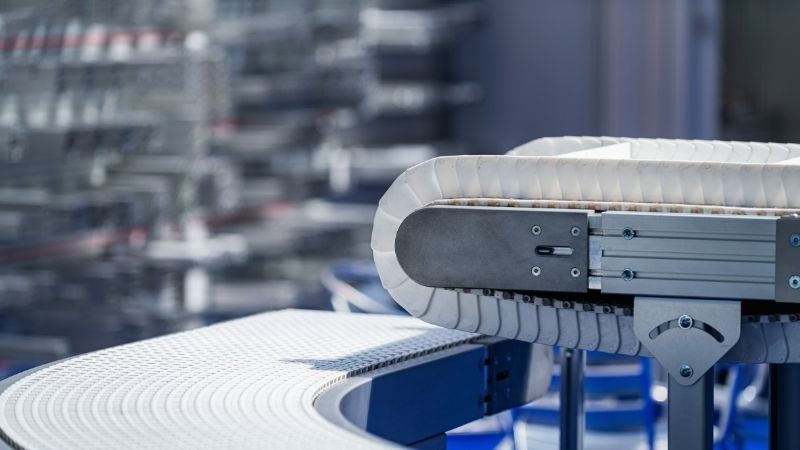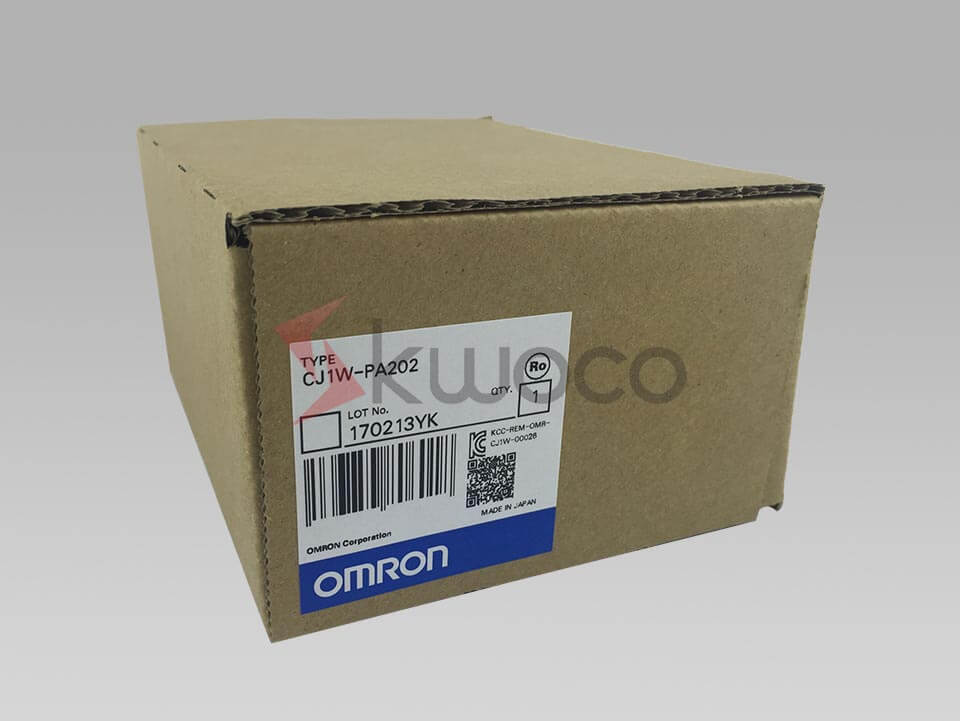Fehlerbehebung bei häufigen SPS-Fehlern: Ein Leitfaden zu speicherprogrammierbaren Steuerungen
Dieser Leitfaden befasst sich mit den häufigsten Ursachen für SPS Ausfälle und bietet praktische Tipps zur Fehlerbehebung, die Ihnen dabei helfen, die optimale Leistung Ihrer SPS-Systeme aufrechtzuerhalten.
Inhaltsverzeichnis
Was verursacht SPS-Fehler in Steuerungssystemen?
Das Verständnis der Gründe für SPS-Ausfälle ist für die Aufrechterhaltung effizienter Steuerungssysteme von entscheidender Bedeutung. Hier sind einige häufige Probleme, die zu SPS-Problemen führen können.
Verschleiß der internen Komponenten
Mit der Zeit kann es bei den internen Komponenten der SPS, wie z. B. der zentralen Verarbeitungseinheit (CPU) und den Modulen, durch den Dauerbetrieb zu Verschleiß kommen.
- CPU-Probleme: Probleme mit der CPU können zu Systeminstabilität oder -ausfall führen.
- Fehlerhafte Module: SPS-Module, einschließlich Eingabe-/Ausgabemodule, können ausfallen und Systemstörungen verursachen.
- Beschädigung des SPS-Speichers: Im Speicher einer SPS werden Programme und Daten gespeichert. Beschädigungen können zu unvorhersehbarem Verhalten führen.
Externe Faktoren und Umweltbedingungen
Externe Faktoren können die Leistung von SPS erheblich beeinträchtigen.
- Elektrisches Rauschen und elektromagnetische Interferenzen (EMI): Elektrisches Rauschen und elektromagnetische Störungen können die Signale im SPS-System stören.
- Spannungsschwankungen: Spannungsprobleme können zu Problemen mit der Stromversorgung führen und den Betrieb der SPS beeinträchtigen.
- Raue Industrieumgebungen: Durch extreme Temperaturen und Staub können interne Komponenten beschädigt werden.
Menschliches Versagen und Wartungspraktiken
Menschliches Versagen und mangelnde Wartung können zu SPS-Ausfällen führen.
- Falsche Programmierung: Fehler im SPS-Programm können zu Fehlfunktionen des Systems führen.
- Unsachgemäße Wartung: Durch Vernachlässigung von Reparatur und Wartung kann es zu unbemerktem Verschleiß kommen.
- Lose Verbindungen: Lose Verbindungen innerhalb des SPS-Steuermoduls oder mit Feldgeräten können zeitweise Probleme verursachen.
Wenn Sie sich dieser häufigen Ursachen für SPS-Ausfälle bewusst sind, können Sie Strategien implementieren, um diese Probleme zu vermeiden und die Zuverlässigkeit Ihrer SPS-Systeme sicherzustellen.
Welchen Einfluss haben elektrische Störungen auf die Leistung der SPS?
Elektrische Störungen sind ein erhebliches Problem, das zu SPS-Fehlern und Systeminstabilität führen kann.
Elektrisches Rauschen verstehen
Unter elektrischem Rauschen versteht man unerwünschte Störungen, die elektrische Schaltkreise beeinträchtigen.
- Elektromagnetische Interferenz (EMI): Wird durch Geräte wie Motoren verursacht und führt zu Störungen innerhalb der SPS.
- Hochfrequenzstörungen (RFI): Wird von drahtlosen Geräten ausgestrahlt und kann die Kommunikation der SPS beeinträchtigen.
Auswirkungen auf SPS-Systeme
- Datenverlust: Elektrisches Rauschen kann Daten innerhalb der SPS beschädigen.
- Systemabstürze: Starke Störungen können zu einem Reset oder Absturz des SPS-Systems führen.
- Zeitweilige Ausfälle: Führt zu unvorhersehbaren, schwer zu diagnostizierenden SPS-Problemen.
Minderungsstrategien
- Richtige Erdung: Durch Sicherstellung der Erdungsintegrität mit einem speziellen Erdungskabel werden Störungen verringert.
- Geschirmte Kabel: Verwendung von geschirmten Kabeln zur Minimierung elektrischer Störungen.
- EMI/RFI-Filter: Installieren von Filtern zum Blockieren unerwünschter Signale.
Die Implementierung dieser Strategien trägt dazu bei, zu verhindern, dass Ihre SPS-Systeme durch elektrisches Rauschen gestört werden.
Fehlerbehebung bei Modulfehlern in SPS-Systemen
Modulausfälle sind ein häufiges Problem, das zu Systemausfällen in SPS-Steuerungssystemen führen kann.
Identifizieren von Modulfehlern
- Fehlercodes und Fehlermeldungen: Die SPS zeigt möglicherweise bestimmte Codes an, die auf Probleme hinweisen.
- Inkonsistente Messwerte: Feldgeräte können fehlerhafte Daten liefern.
- Systeminstabilität: Das System kann instabil werden oder abstürzen.
Häufige Ursachen
- Spannungsprobleme: Über- oder Unterspannung kann Module beschädigen.
- Verschleiß: Längerer Gebrauch kann zum Verschleiß der Module führen.
- Lose Verbindungen: Verbindungen zu Modulen oder Feldgeräten können sich lösen.
Schritte zur Fehlerbehebung
- Spannungspegel prüfen: Stellen Sie sicher, dass die Stromversorgung die richtige Spannung liefert.
- Verbindungen prüfen: Ziehen Sie alle losen Verbindungen fest.
- Ersetzen Sie defekte Module: Tauschen Sie Module aus, die Anzeichen eines Fehlers aufweisen.
Durch die umgehende Behebung von Modulausfällen können Sie die Zuverlässigkeit Ihrer SPS-Steuerungssysteme aufrechterhalten.
Die Bedeutung der Erdungsintegrität im SPS-Betrieb
Die Erdungsintegrität ist für den sicheren und effizienten Betrieb von SPS von entscheidender Bedeutung.
Vorteile einer ordnungsgemäßen Erdung
- Reduziert elektrisches Rauschen: Minimiert EMI und RFI und gewährleistet die Signalintegrität.
- Verhindert Erdschleifen: Vermeidet unbeabsichtigte Strompfade, die die SPS stören können.
- Verbessert die Sicherheit: Schützt vor Stromschlägen und Geräteschäden.
Häufige Erdungsprobleme
- Unsachgemäße Installation: Eine falsche Erdung kann zu stärkerem Lärm führen.
- Korrosion und Schäden: Kann das Erdungskabel beschädigen und so die Erdungsintegrität beeinträchtigen.
Bewährte Methoden
- Regelmäßige Inspektionen: Erdungssysteme auf Anzeichen von Verschleiß prüfen.
- Verwenden Sie dedizierte Gründe: Verhindert Störungen durch andere Geräte.
- Befolgen Sie Industriestandards: Beachten Sie die Richtlinien zur Erdung in industriellen Umgebungen.
Durch die ordnungsgemäße Erdung wird sichergestellt, dass Ihre SPS-Systeme ohne Störungen durch elektrisches Rauschen funktionieren.
Beheben von Stromversorgungsproblemen in SPSen
Probleme mit der Stromversorgung können zu erheblichen Störungen in SPS-Systemen führen.
Häufige Probleme mit der Stromversorgung
- Stromstöße: Kann die internen Komponenten der SPS beschädigen.
- Spannungsschwankungen: Führt zu Instabilitäten im SPS-System.
- Stromausfall: Ein vollständiger Stromausfall führt zum Betriebsstillstand.
Lösungen
- Überspannungsschutz: Installieren Sie Geräte zum Schutz vor Überspannungen.
- Unterbrechungsfreie Stromversorgung (USV): Stellen Sie eine Notstromquelle für die SPS bereit.
- Regelmäßige Wartung: Überprüfen Sie die Stromversorgung auf Anzeichen von Störungen.
Ursachen für Probleme mit der Stromversorgung
- Netzausfall: Externe Stromversorgungsprobleme, die die Stromversorgung der SPS beeinträchtigen.
- Interner Komponentenfehler: Fehler im Leistungsmodul der SPS.
- Externe Faktoren: Umgebungsbedingungen, die zu Problemen mit der Stromversorgung führen.
Durch proaktives Management von Stromversorgungsproblemen können Sie unerwartete SPS-Ausfälle verhindern.
Häufig gestellte Fragen
Was sind die häufigsten Anzeichen für einen bevorstehenden SPS-Ausfall?
Zu den Anzeichen zählen zeitweilige Ausfälle, unerwartete Systemabstürze, Fehlercodes und ungewöhnliches Verhalten von Feldgeräten.
Wie kann ich elektrisches Rauschen in meinem SPS-System minimieren?
Verwenden Sie abgeschirmte Kabel, stellen Sie eine ordnungsgemäße Erdung sicher und installieren Sie EMI/RFI-Filter, um elektrische Störungen zu verringern.
Warum ist die Erdung für SPS wichtig?
Eine ordnungsgemäße Erdung verringert das elektrische Rauschen, verhindert Erdschleifen und verbessert die Systemstabilität und -sicherheit.
Was verursacht Modulausfälle in SPSen?
Ursachen sind unter anderem Spannungsprobleme, Verschleiß und lose Verbindungen mit Modulen oder Feldgeräten.
Versorgen Sie Ihre Projekte mit brandneuen, originalen SPS von Omron, Mitsubishi und Schneider – auf Lager, sofort verfügbar!
Abschluss
Wenn Sie diese häufigen Probleme verstehen und beheben, können Sie dafür sorgen, dass Ihre speicherprogrammierbaren Steuerungen effizient laufen und Ihre Automatisierungsprozesse reibungslos ablaufen. Proaktive Maßnahmen und regelmäßige Wartung sind der Schlüssel zur Vermeidung von SPS-Ausfällen und zur Minimierung von Ausfallzeiten.
Suchen Sie nach neuen, originalen SPS für Ihre Projekte? Bei Kwoco führen wir die neuesten SPS von Top-Marken wie Omron, Mitsubishi, Und Schneider. Kaufen Sie vertrauensvoll ein – schneller Versand, garantierte Qualität! Jetzt kaufen
Kontaktieren Sie uns
Geben Sie in dieses Formular einfach Ihren Namen, Ihre E-Mail-Adresse und eine kurze Beschreibung Ihrer Anfrage ein. Wir werden Sie innerhalb von 24 Stunden kontaktieren.
Diese Themen könnten Sie auch interessieren
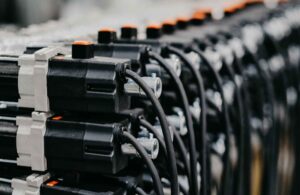
Was ist der Zweck eines Servomotors?
Servomotoren sind in modernen Industrieanwendungen unverzichtbar geworden und bieten beispiellose Präzision und Kontrolle. Ob in der Robotik, Automatisierung oder jedem anderen System, das genaue Bewegungen erfordert, Servomotoren sind das Herzstück von allem. In diesem Artikel untersuchen wir den Zweck von Servomotoren, ihre Typen und warum sie heute in verschiedenen Branchen von entscheidender Bedeutung sind.
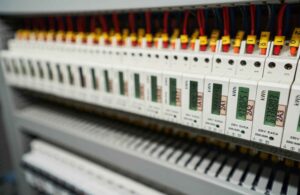
SPS-Programmierhandbuch: Beherrschen Sie die industrielle Automatisierung
Möchten Sie die Welt der speicherprogrammierbaren Steuerungen (SPS) verstehen und erfahren, wie diese die industrielle Automatisierung revolutionieren? Dieser umfassende Leitfaden führt Sie durch alles, was Sie über die SPS-Programmierung wissen müssen, von grundlegenden Konzepten bis hin zu fortgeschrittenen Techniken, und hilft sowohl Anfängern als auch erfahrenen Profis, ihre Automatisierungskenntnisse zu verbessern.
Magnetschalter entmystifizieren: Ein umfassender Leitfaden für industrielle Anwendungen
Dieser Artikel bietet einen detaillierten Einblick in Magnetschalter und untersucht ihre Funktion, Vorteile und Anwendungen, insbesondere in industriellen Umgebungen. Egal, ob Sie ein erfahrener Ingenieur oder ein Neuling in der Welt der industriellen Automatisierung sind, dieser Leitfaden vermittelt Ihnen ein umfassendes Verständnis davon, wie Magnetschalter Ihre Abläufe verbessern können. Wir möchten diese Geräte entmystifizieren und zeigen, warum sie eine entscheidende Komponente in modernen Fertigungs- und Automatisierungssystemen sind.

